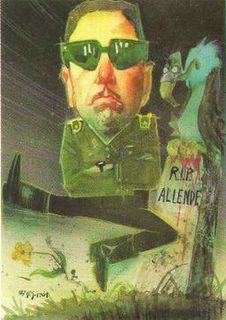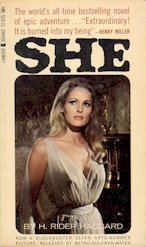Peter Benenson dies; founded Amnesty International
I disapprove of dying, and so I am not going to junk up this blog with obituary notices, or take much heed of people who do this thing of which I disapprove. I do not believe dying is an achievement worthy of chopping down forests. I plan not to do much of it myself.
Freud said nobody really believes he's ever going to die. I'm with Freud. I'll call him up tomorrow and tell him what a smart guy I think he is.
But I have heard rumors, some credible, that we all have to go sometime. If that's true, then a question has to be asked: Was it a Good Life? Or was it a Worthless Piece-o-Crap Life that just fucked up the neighborhood and made everyone miserable, like Donald Trump's?
In my high school Latin class, above the blackboard, Miss Murphy posted
the Young Men of Athens
not only not less,
but greater and more beautiful than we found it.
It meant utterly nothing to me at the time, me being 16 and an idiot. (The Young Men of Athens swore it at 17.) But every day for a year I had to face and read it, I remembered it, and it's grown on me. (SWMBO tells me it's also the model for the oath of the Girl Scouts.)
Here is a guy who just died (I disapprove, he should not have), but who left Earth a better place than he found it. Because he got angry and outraged, and used these passions creatively, we on Earth don't have to be quite so embarrassed and ashamed of this planet now.
When the Aliens finally land and ask, "What do you folks do for fun around here?", we're going to have a lot of explaining to do. But we won't have to explain quite as much really nasty crap as we used to, before this guy got really pissed off and decided that one human being could do something to change it.
You'll find a trading card for Portugal's Antonio de Oliveira Salazar in Vleeptron's earlier post about America's Friendly Dictators. Salazar's PIDE secret police sentenced the two students who drank a toast to liberty aloud in a cafe to seven years in prison. This vile piece-o-crap is dead now, the Earth is a better place, and I approve.
The New York Times
Monday 28 February 2005
Peter Benenson, 83; Founded Amnesty Group, Dies
by Robert D. McFadden
Peter Benenson, a British lawyer whose outrage over the imprisonment of two Portuguese students for drinking a toast to liberty spawned the human rights organization Amnesty International in 1961, died Friday in a hospital in Oxford, England. He was 83.
The cause was pneumonia, said Brendan Paddy, a spokesman for the London-based organization.
What Mr. Benenson first envisioned as a one-year letter-writing campaign on behalf of "prisoners of conscience," who were being persecuted for their beliefs, eventually grew into the world's largest human rights organization, with 1.8 million members, chapters in 64 countries and a perennially powerful voice against torture, unjust imprisonment and the death penalty.
Amnesty International, which won the 1977 Nobel Peace Prize for "defending human dignity against violence and subjugation," has campaigned for decades against violations of the rights of women, children, political prisoners, minorities, religious groups, workers and disabled people, among others. Today, it is fighting the execution of child offenders in Iran, warning of human rights violations by Nepal and demanding the release of prisoners at the United States detention camp at Guantánamo Bay, Cuba.
"Peter Benenson's life was a courageous testament to his visionary commitment to fight injustice around the world," the organization's secretary general, Irene Khan, said in a statement. "He brought light into the darkness of prisons, the horror of torture chambers and the tragedy of death camps around the world."
Educated at Eton and Oxford, Mr. Benenson was a passionate advocate for human rights in fascist Spain, British-ruled Cyprus and repressive South Africa. He was almost 40, a bowler-topped barrister on the London Underground in 1961, when he read a news item about two Lisbon students sentenced to seven years in prison for toasting freedom in Portugal, then under the dictatorship of António Salazar.
In what he called "The Forgotten Prisoners" and "An Appeal for Amnesty," which appeared on the front page of The Observer, a British newspaper, he wrote about the two students and four other people who had been jailed in other nations because of their beliefs.
"Open your newspaper any day of the week, and you will find a report from somewhere in the world of someone being imprisoned, tortured or executed because his opinions or religion are unacceptable to his government," he wrote. "The reader feels a sickening sense of impotence. Yet if these feelings of disgust all over the world could be united into common action, something effective could be done."
He called for a one-year campaign of letter-writing to repressive authorities, demanding enforcement of the Universal Declaration of Human Rights, which was adopted by the United Nations in 1948 but was widely ignored. The result was an outpouring of letters, telegrams and publicity that swelled into a permanent campaign and the formation of Amnesty International.
In its early years, Mr. Benenson ran the organization, provided most of the money, traveled widely to investigate cases and promoted its causes in journals and newspapers. He stepped down as the leader in 1966 after an independent investigation did not support his claim that the group was being infiltrated by British intelligence.
But he continued to have an active interest in the organization's affairs, helped to found and support similar groups and observed Amnesty International's 25th anniversary by lighting a symbolic candle outside St. Martin-in-the-Fields, the church off Trafalgar Square where he had first envisioned the organization. Its logo is a candle wrapped in barbed wire.
Peter Benenson was born in London on July 31, 1921, the son of a British army colonel. He was tutored privately by the poet W. H. Auden and began his first campaign at Eton - for better food. At 16 he organized fund-raising for orphans of the Spanish Civil War, and later raised money to get two Jews out of Nazi Germany.
After service with the Ministry of Information in World War II, he became a lawyer, was an official observer at the trials of trade unionists in Franco's Spain, advised lawyers for defendants accused of resistance to British rule in Cyprus and prodded London to send observers to Hungary during the 1956 uprising and to racially divided South Africa during a treason trial.
For his role in founding Amnesty International, he was recommended for a knighthood by various prime ministers, but always demurred, responding with a litany of human rights violations that, he said, needed more urgent attention. In the 1980's, he became chairman of Association of Christians Against Torture, and in the 1990's he organized aid for Romanian orphans. He also founded a group to aid victims of celiac disease -- a faulty absorption of gluten in the intestines -- which he had.
Mr. Benenson's family issued no statement. Amnesty International, which announced his death, listed his survivors as his wife, Susan; a son, Joe; a daughter, Manya Scarffe; and two daughters by a previous marriage, Natasha Benenson and Jill Ackroyd.
Copyright 2005 The New York Times Company




